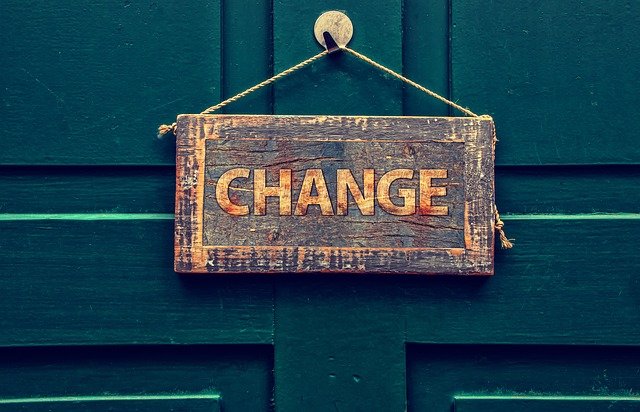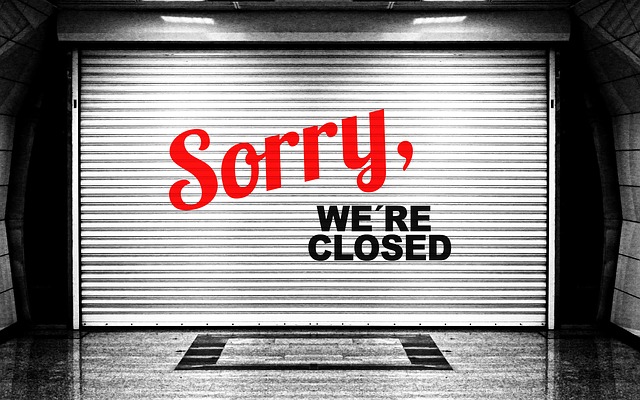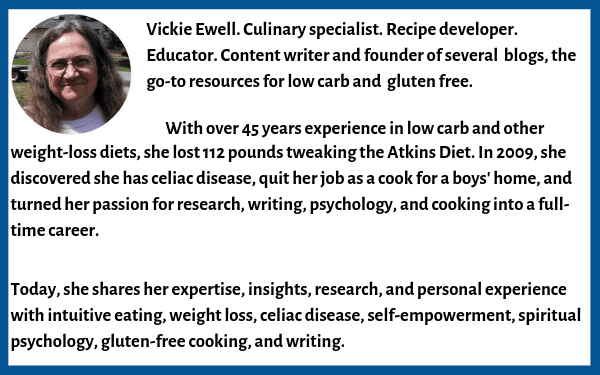When you are first diagnosed with celiac disease or non-celiac gluten sensitivity, you're faced with several choices.
One choice is pretending that you don't have a problem with gluten.
This coping mechanism (called denial) often occurs in those who have self diagnosed themselves, but aren't ready to accept it fully. This is because the traditional perception of celiac disease is that it mostly strikes children who quickly become malnourished, underweight, and experience frequent diarrhea.
This perception no longer fits the majority of celiacs today.
Most celiac patients are adults who are normal weight, overweight, or even obese. Surprisingly, only 1/3 of those with gluten problems actually experience traditional gastrointestinal symptoms.
One-half, or more, are completely symptom free!
The rest have problems that fall outside of the norm.
This denial in both the diagnosed and undiagnosed makes it harder to learn how to cope with your situation.
However, having gastrointestinal symptoms doesn't always result in faster acceptance. You might still struggle to understand the seriousness in sticking to a strict gluten-free diet or wonder why you need to read every single label at the grocery store every time you go shopping.
Instead of learning how to cope with your new reality, you might be tempted to consider celiac disease a curse.
While “curse” seems a bit harsh, the emotional trauma that surfaces once you discover the drastic lengths you must go to in order to stay safe, few would consider celiac disease to be a blessing.
Grieving Is Part of the Healing Process
Recognizing that a gluten-free diet is your new reality, and accepting what life has dished out, doesn't mean you can't take a few days to wallow in self-pity.
Losing gluten in our current society is a big thing. Don't let anyone tell you it isn't. Even though I've been gluten free for over 15 years now, I still miss:
- a thick-crusted pizza
- super-soft cinnamon rolls
- soft sandwich bread
- blueberry bagels with cream cheese
- glazed, raised donuts
How I Tested Myself for Gluten Sensitivity
So, let's be honest.
The blessings of going gluten free cannot compare to everything I have lost. I learned that lesson back when I thought I was corn intolerant.
After allowing the idea of being sensitive to corn to sit in my mind for awhile, I began wondering why I had started down the gluten-free road because my food sensitivities had only gotten worse.
Not better.
What started out as a 30-day gluten-free experiment soon evolved into going dairy free and corn free, as well. Some medical professionals and GMO-free supporters believe that corn can damage the villi in your small intestines, the same as wheat, barley, and rye.
To make matters worse: I began wondering if I even had celiac disease at all.
I didn't know anything about leaky gut back then. I did know that enriched flours and most dairy products are contaminated with corn. So, I allowed the idea of my problem being corn to raise the hope that maybe I wasn't really sensitive to gluten after all.
Maybe it was really corn.
Putting that idea to the test was easy:
I simply purchased some wheat pasta online that was imported from Italy, so it would be totally free of corn contamination.
Although, it didn't taste any better than some of the gluten-free pastas do today, it was a cheaper option than ordering a 25-pound sack of barley-free, corn-free, all-purpose wheat flour.
And it was the flour that I was really after.
I wanted to be able to make homemade bread again. I wanted to be able to make thick-crusted pizza and super-soft cinnamon rolls.
That was my desire.
To bring back into my life everything I was missing.
But after eating the pasta a couple of times after it arrived, my gastrointestinal problems came back with a vengeance. I suffered with so much inflammation, cramping, and other issues that I couldn't leave the house. I spent most of my time in the shower.
This was the head-slap I needed to wake up!
I could no longer pretend that I didn't have celiac disease. I was hurting, and I was ill. And there was no way to deny that.
This was a pretty sad period in my life.
The test had destroyed the dream I had tried to create, but it also reminded me of why I had chosen to self-diagnose myself with celiac disease all those years ago.
I had:
- pain in my joints, heart, and belly
- inflammation
- heart irregularities
- fat malabsorption
- neuropathy
- cramping and diarrhea
- red, itchy, blistering rash
Learning to Cope with a Gluten-Free Diet
When you lose something that you hold dear, you are faced with the challenge of accepting that your life has changed. While grieving does take up a portion of that path, there comes a time when you have to close the door on what used to be and embrace how life is now.
That's how it was for me.
However, learning to cope with celiac disease has not been easy for my husband and me.
It's difficult emotionally when friends and family do not understand the seriousness of the situation. It's lonely. As a super sensitive celiac, I reached a point in my journey where I decided it best to just stay home most of the time, rather than to continuously expose myself to the possibility of being glutened.
It's also time consuming to uncover everything you need to know and do to stay safe. Products have to be thoroughly investigated before adding them to your diet. And many products have to be avoided completely.
This translates into an abrupt change in lifestyle.
Once celiac disease activates, there is no way to undo the body's response to gluten. The only treatment currently available is a strict gluten-free diet.
How strict depends on your sensitivity level.
Realistically, eliminating your favorite foods for the rest of your life will activate more emotions than just grief. Not only do you have to cope with a gluten-free diet, and cross contamination, but you also have to face your insecurities, anger, and resistance to what you can no longer control in your life.
That can make you feel alone, fearful, and betrayed.
For those who don't suffer drastic gastrointestinal symptoms or other serious health issues that are associated with gluten, it can be more difficult to see the benefit of switching to and staying true to a gluten-free diet.
Compliance with an eating style that eliminates wheat, barley, and rye will bring you to a more wholesome table. That's true. But, maybe not, if you simply switch from Frosted Flakes to Cocoa Pebbles.
For a large number of celiacs, learning to cook and bake gluten free has opened a door of opportunity they didn't see before. These folks often refer to their celiac disease diagnosis as a blessing.
While healthy meals have always been available to us, cooking with whole foods and switching to alternative grains like sorghum, millet, and quinoa are foreign ideas for the average person.
Life's demands in our fast-paced society are generally accommodated by going out for a super-sized burger and fries or ordering in a pizza and popping the tab on a icy-cold can of beer.
Once diagnosed with celiac disease, however, everything changes.
Now, the hamburger bun is off limits. The fries are contaminated by chicken nuggets or onion rings fried in the same oil. The pizza crust is made from all-purpose wheat flour and the beer contains barley malt.
Unless you live close to a health food store or a very large supermarket that stocks a decent amount of gluten-free products, your grab-and-go choices aren't much better.
Now, you have to cook and bake from scratch.
Cooking and baking gluten free doesn't have to take a lot of time. It just takes a shift in your perspective.
How to Cope with Celiac Disease
Peter H. R. Green is a well-known physician who specializes in treating those with celiac disease. In his popular book, Celiac Disease: A Hidden Epidemic, he states that many parents take better care of their children with celiac disease than his adult celiac patients take care of themselves.
Children have a way of expressing truth in the most honest, straight-forward manner. If they feel left out because everyone is eating something they can't have, they're likely to say so.
Most parents go out of their way to fulfill their children's desires. Why should it be any different for you?
If it was one of your children who had been diagnosed with celiac disease, instead of you, what would you be doing different?
- How would you be feeling?
- How would you be cooking?
- And how would you be eating?
You have to stay aware of every move you make. This is because coping with celiac disease requires you to actively make it happen. You can't pretend it's not there.
If you don't like to cook or bake, you might need to try a variety of different celiac-friendly brands and gluten-free products until you find the perfect bread or cake mix. It might mean investing in an outdoor or indoor grill and food steamer, so you can enjoy a marinated chicken breast and steamed veggies in less than 20 minutes.
If you do like to cook or bake, coping requires you to learn new principles. You'll have to hunt down new recipes, food ideas, and knowledgeable gluten-free cooks who can help you make the transition from a typical gluten-filled diet to something more wholesome and enjoyable for you.
And yes. I said enjoyable.
Cooking gluten free isn't horrid.
You can make delicious healthy meals and snacks. Gluten free is just different. Instead of grabbing a package of Little Debbies off the grocery shelf, and calling it good, you'll have to make your own gluten-free cookies, cakes, breads, pies, and muffins.
You'll have to learn how to convert some of your current recipes and favorite meals to be gluten free.
While some things, such as raised donuts, are not easily replicated, using almond flour to replace graham crackers for your favorite, holiday cheesecake recipe won't make enough of a difference for your guests to even notice.
(Mia Del makes a fantastic certified gluten-free pie crust if you do not want to switch to a homemade gluten-free crust.)
Letting go of the past will enable you to learn how to cope with your celiac disease today. Yes, you'll miss what life was like then. I'm not going to tell you that you won't.
But that life doesn't exist anymore.
It's gone.
Instead of wasting your time wishing for what could have been, you'll be much happier if you accept what is and spend those hours on learning how to add richness to your celiac life today.





Comments
Post a Comment